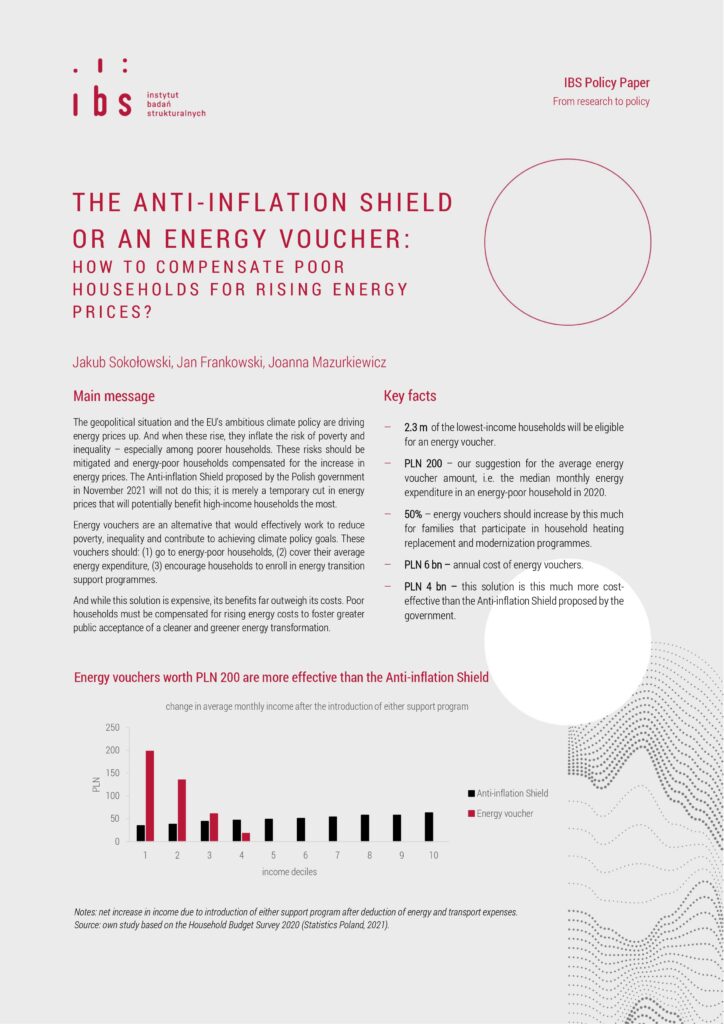The geopolitical situation and the EU’s ambitious climate policy are increasing energy prices. And when these rise, they inflate the risk of poverty and
inequality – especially among poorer households. The Anti-inflation Shield proposed by the Polish government in November 2021 is not a remedy to that problem; it is merely a temporary cut in energy prices that will potentially benefit high-income households the most. Energy vouchers are an alternative that would effectively work to reduce poverty and inequality and contribute to achieving climate policy goals. These vouchers should:
(1) go to energy-poor households,
(2) cover their average energy expenditure,
(3) encourage households to enrol in energy transition support programmes.
And while this solution is expensive, its benefits far outweigh its costs. Poor households must be compensated for rising energy costs to foster greater public acceptance of a cleaner and greener energy transformation.

Institute for Structural Research (IBS), Institute of Philosophy and Sociology Polish Academy of Sciences

